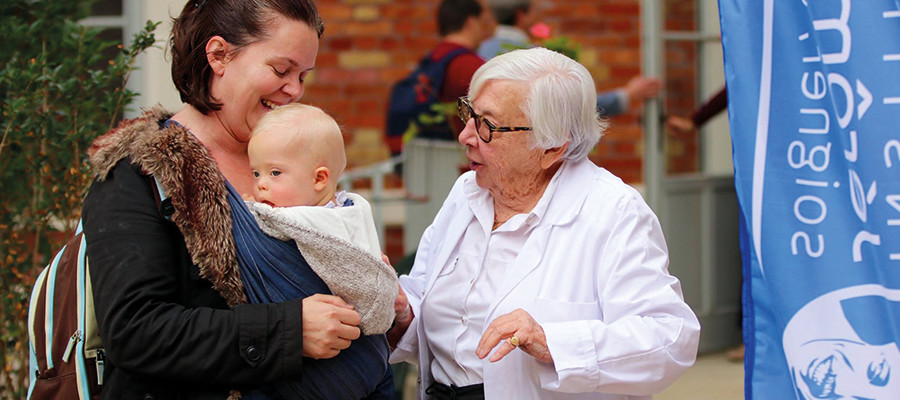Our collective expertise at the service of patients, always under a positive and benevolent eye
The Institute follows in the footsteps of the great Hippocratic tradition transmitted by Professor Jérôme Lejeune, of which several of his coworkers and students, still active at the Institute, are the guarantors.
We believe that each of our patients deserves the greatest attention and the best possible care, regardless of his or her disability, history, age, faith or convictions.
We are convinced that the parents are the best educators of their children, and it is not our place to judge them or to interfere with their choices. Our duty is to inform them about the needs of their children.
We believe that the disability does not efface the talents, personality or dignity of the person. Only a positive and benevolent eye can help each patient develop his or her full potential and find his or her place in society.
We are certain that, one day, we will be able to achieve a significant correction of the intellectual disability. That is the priority of our research programs.
We are convinced that it is essential to take the time to care for these individuals properly: to take the time to listen, to ask questions, to examine, to cry or to rejoice, but also the time to discuss cases as a team or for training. For this reason, all consultations at the Institute last an hour. Every week, the team meets to discuss the situations encountered and to share experiences or views concerning particular patients.
We believe in the virtues of teamwork and networks. We make contact with the healthcare professionals responsible for the everyday healthcare of our patients. Our doctors regularly participate at conferences.
We recognize in each of our patients a person, with rights and duties. These rights include the right to consent or to refuse care, to choose one’s doctor and to change doctors, to receive the best possible prior explanations, in simple and accessible terms, and, finally, the right to be respected in one’s choices. The duties of the patients and their families are to behave respectfully to the medical and non-medical staff and other patients, to respect times, to transmit all the information required for effective management faithfully and to follow the prescriptions given.

